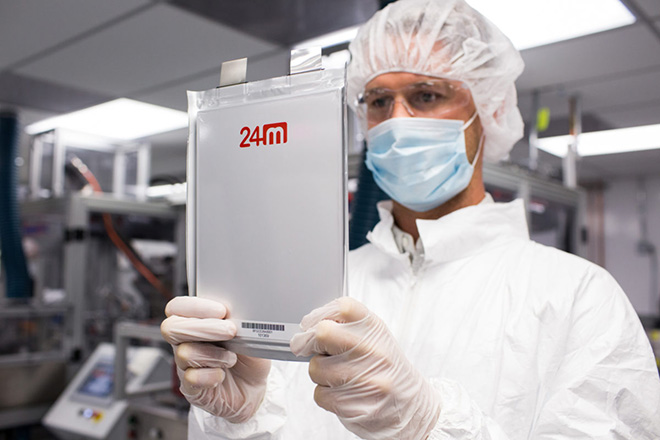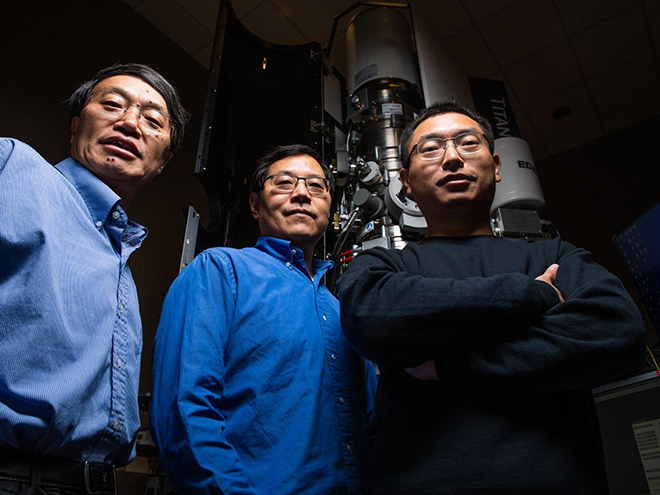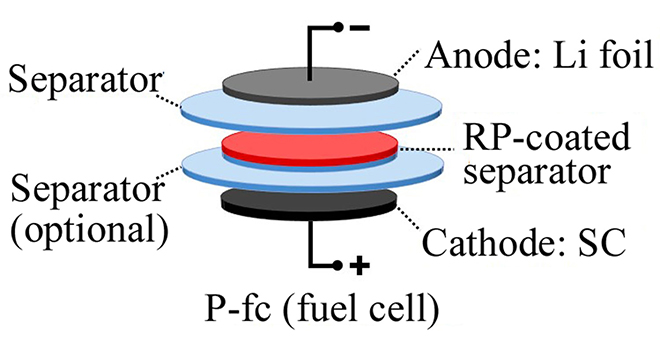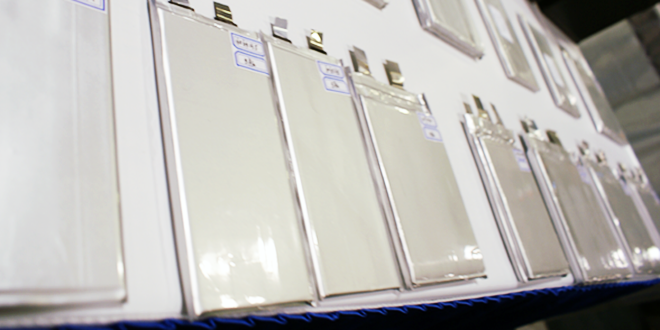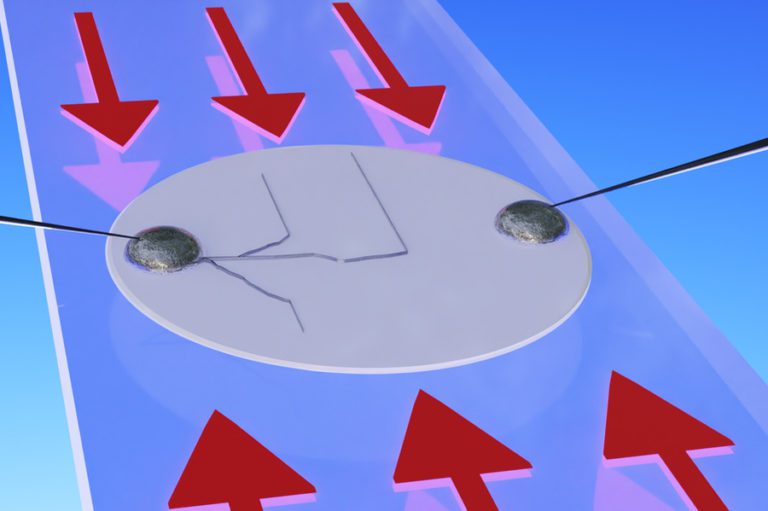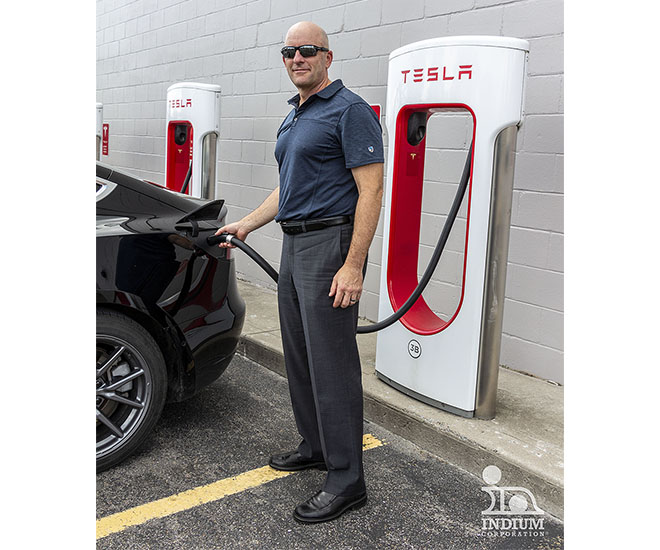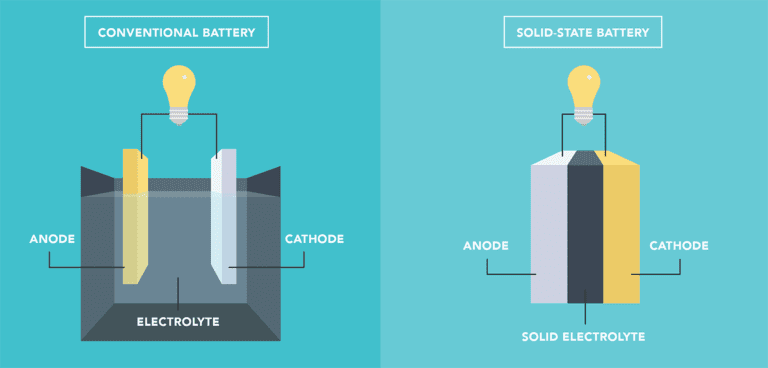Battery manufacturing technology provider 24M has unveiled a new battery separator tech called 24M Impervio, which the company says can make EV batteries substantially safer by inhibiting the growth of dendrites (rootlike metal growths that can build up on the anode surface, potentially causing a short-circuit that can lead to a fire). 24M’s Impervio technology… Read more »
Search Results Found For: "dendrites"
PNNL scientists pinpoint cause of dendrites in lithium batteries
Scientists at the DOE’s Pacific Northwest National Lab have uncovered a “root” cause of the growth of needle-like structures – known as dendrites and whiskers – that plague lithium batteries and can cause short circuit, failure, and even fire. Dendrites are tiny, rigid tree-like structures that can grow inside a lithium battery. Their needle-like projections… Read more »
Rice University adds red phosphorus to separators to foil dendrites
Rice University scientists have found that adding a layer of red phosphorus to separators in lithium metal batteries can signal when damaging dendrites threaten to create a short circuit. Rice University chemist James Tour made lithium metal test cells with a coat of red phosphorus on the separator, which keeps the anode and cathode electrodes… Read more »
Kevlar-based nanocomposite foils dendrites for bulletproof batteries
Those doggone dendrites are a bane of battery builders. These pesky fern-like growths can form on the surfaces of anodes during cycling, reducing battery life or even causing a catastrophic short circuit – this is how the battery fires on the Boeing 787 are thought to have started. A team of researchers from the University… Read more »
Thermal runaway early detection: critical sensors and connections for safe battery management
Sponsored by TTI and Amphenol. Battery management systems (BMS)—the electronic brains that monitors and maintains lithium ion battery packs—are essential for the safe and efficient operation of the batteries powering a variety of applications, including electric vehicles. The growth of electric vehicle technology is driven by the desire for reduced emissions, quieter and less expensive… Read more »
Engineers find a novel way to control dendrite propagation in solid-state batteries
Solid-state batteries are a major focus for battery researchers, as they could offer weight and size reductions, as well as greater safety, compared to current Li-ion designs. However, they have a major drawback: dendrites, root-like structures that build up on the lithium surface and penetrate the solid electrolyte, eventually crossing from one electrode to the… Read more »
Electronics assembly challenges and solutions for the evolving e-mobility landscape
Sponsored by Indium Corporation The e-Mobility Landscape Multiple new EV-only automakers have emerged in recent years—due in part to lower cost of entry, climate change, and environmental government policies—creating a demand to launch new competitive EVs that didn’t exist within the legacy original equipment manufacturer (OEM) marketplace. In this rapidly expanding EV market, reliability and… Read more »
Adden Energy receives exclusive tech license and seed funding for solid-state battery scale-up
Solid-state EV battery startup Adden Energy has received an exclusive technology license from Harvard University’s Office of Technology Development, and $5.15 million in seed financing from Primavera Capital Group, Rhapsody Venture Partners and MassVentures. Adden Energy plans to use the funding to scale up a solid-state coin-cell prototype developed by researchers in Xin Li’s Harvard laboratory…. Read more »
Are solid-state batteries always safer than Li-ion?
Many in the EV industry see solid-state batteries as the future, and one of the reasons is that the more stable solid electrolyte is expected to be safer than current liquid electrolytes. However, new research indicates that the picture may be more complex. A recent study led by the DOE’s Sandia National Laboratories, published in… Read more »
University of Michigan researchers predict 1,000 real-world cycles for their lithium-sulfur battery
Researchers at the University of Michigan have developed a lithium-sulfur battery which they estimate will be able to achieve 1,000 real-world cycles with fast charging. In an article published in Nature Communications, the researchers write: “Lithium-sulfur batteries have a high specific capacity, but lithium polysulfide (LPS) diffusion and lithium dendrite growth drastically reduce their cycle… Read more »







